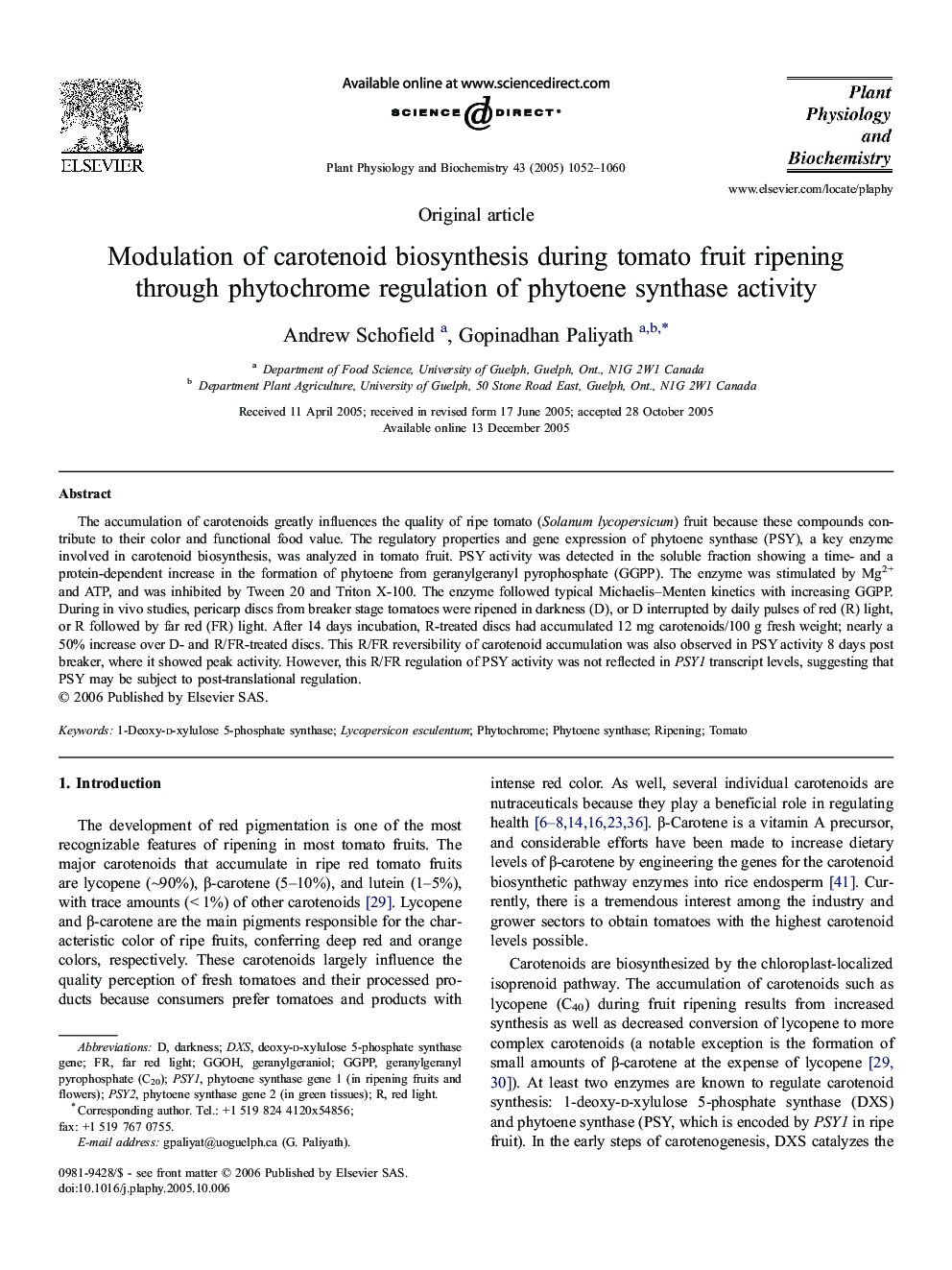| Article ID | Journal | Published Year | Pages | File Type |
|---|---|---|---|---|
| 10840554 | Plant Physiology and Biochemistry | 2005 | 9 Pages |
Abstract
The accumulation of carotenoids greatly influences the quality of ripe tomato (Solanum lycopersicum) fruit because these compounds contribute to their color and functional food value. The regulatory properties and gene expression of phytoene synthase (PSY), a key enzyme involved in carotenoid biosynthesis, was analyzed in tomato fruit. PSY activity was detected in the soluble fraction showing a time- and a protein-dependent increase in the formation of phytoene from geranylgeranyl pyrophosphate (GGPP). The enzyme was stimulated by Mg2+ and ATP, and was inhibited by Tween 20 and Triton X-100. The enzyme followed typical Michaelis-Menten kinetics with increasing GGPP. During in vivo studies, pericarp discs from breaker stage tomatoes were ripened in darkness (D), or D interrupted by daily pulses of red (R) light, or R followed by far red (FR) light. After 14 days incubation, R-treated discs had accumulated 12Â mg carotenoids/100 g fresh weight; nearly a 50% increase over D- and R/FR-treated discs. This R/FR reversibility of carotenoid accumulation was also observed in PSY activity 8Â days post breaker, where it showed peak activity. However, this R/FR regulation of PSY activity was not reflected in PSY1 transcript levels, suggesting that PSY may be subject to post-translational regulation.
Keywords
Related Topics
Life Sciences
Agricultural and Biological Sciences
Plant Science
Authors
Andrew Schofield, Gopinadhan Paliyath,
